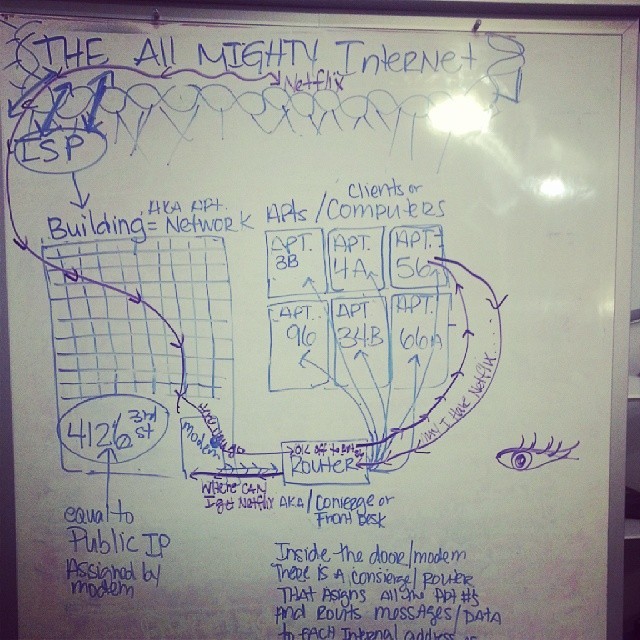Earlier this week, I got the chance to speak at a Lawyers for the Creative Economy (LCE) Code event sponsored by Creative Many (formerly "ArtServe Michigan.") The theme was "Cities, Privacy and IP in the Digital Now," and I contributed some of my ideas about protecting artists' intellectual property and creative uses for augmented and other digital media. The interaction with local artists and attorneys on these issues was great.

But what I enjoyed the most was meeting my co-presenter, Diana Nucera, and learning about her organization, Allied Media Projects. AMP is a network of community organizations in and around the Detroit area focused on using digital media to promote social justice. One of their mantras is "Communication is a Fundamental Human Right."
The means these organizations use to accomplish their goals are just as diverse as their membership (which is intentional, since it's a grassroots organization designed to empower communities to solve problems in their own ways). One of their constituent groups, Detroit Digital Stewards, builds community-owned wireless mesh networks and public computer centers in order to promote digital access in Detroit. I was surprised to learn just how much of the city still doesn't even have reliable access to the internet. These mesh networks address that problem by sharing and amplifying a shared signal within a defined neighborhood, making it affordable. The New York Times wrote about this effort earlier this year.
Another constituent organization, Detroit Future Schools, is an in-school digital media arts program committed to humanizing education in Detroit. It works in a small number of anchor schools where to develop and evaluate core instructional elements and practices, then shares wit others the best practices that result.
Detroit Digital Justice Coalition works to educate the public through Discover Technology, or "Discotech," events. These hands-on community workshops teach everything from how to open an email account to how to build and repair computers. Through such training, DDJC aims to empower even the most disadvantaged citizens to participate in the information economy that the rest of us too often take for granted.
I enjoyed contributing to this conversation, especially by sharing the lessons I've learned from BC Biermann and others about how augmented reality can democratize messaging in the public square. We were all intrigued by the idea of using a physical billboard, for example, as the trigger for an augmented, digital message board for the neighborhood. But most of all, I enjoyed learning about all that's being done locally to help those falling behind the digital revolution to catch up and contribute their own unique voices to the conversation.